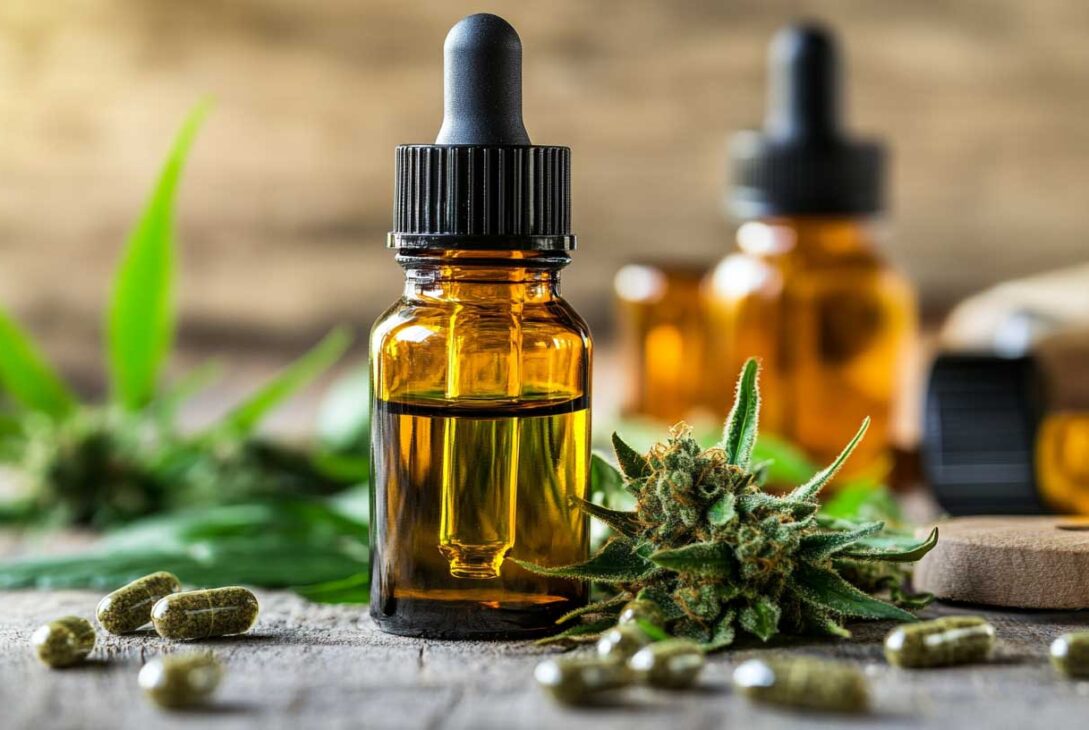Introduction to CBD and Its Potential in Treating Neurodegenerative Disorders
In the realm of wellness and health, a star has quietly risen on the horizon—cannabidiol, or CBD. Unlike its more famous sibling, THC, CBD does not induce a high, but it presents a wealth of therapeutic possibilities, notably in combating neurodegenerative disorders such as Amyotrophic Lateral Sclerosis (ALS). This article delves into the unique attributes of CBD, examining how it might offer therapeutic respite for those grappling with neurodegeneration while weaving in stories and research to provide a fuller picture.
Understanding ALS and Neurodegeneration
Amyotrophic Lateral Sclerosis is more than just a name; it represents a profound struggle. A progressive neurodegenerative disorder, ALS gradually erodes motor neurons—those vital messengers coordinating movement. As these neurons wither, muscle strength diminishes, eventually leading to paralysis and, tragically, death. The stark reality is that current treatments offer limited relief, casting a shadow on the lives of individuals diagnosed with ALS.
Neurodegeneration, in a broader sense, encompasses the slow death of neurons due to factors like oxidative stress, inflammation, and mitochondrial dysfunction. This ongoing damage can have devastating effects on cognition, movement, and overall quality of life. With few options available, the search for alternative therapies, such as CBD, has become increasingly important.
CBD’s Neuroprotective Properties
What is it about CBD that intrigues both researchers and patients alike? The answer lies within its neuroprotective properties. Numerous studies suggest that CBD may offer a multi-faceted approach to treating neurodegenerative diseases.
Anti-Inflammatory Actions
Inflammation is a critical player in the progression of ALS. CBD acts on the endocannabinoid system—a system that’s not just a buzzword but a biological network playing a crucial role in human health. Through reducing neuroinflammation, CBD has the potential to alleviate symptoms like spasticity and chronic pain. Anecdotal reports from patients hint at a newfound sense of ease in managing these debilitating symptoms.
Antioxidant Effects
Imagine a fortress defending against a relentless barrage. That’s how CBD behaves in the face of oxidative stress. Its antioxidant properties allow it to neutralize reactive oxygen species (ROS), which are harmful molecules that can wreak havoc on neurons. Remarkably, research indicates that CBD’s antioxidant prowess may even outshine traditional antioxidants like vitamin E.
Neuroprotection
The intricacies of CBD’s neuroprotective abilities span several molecular targets. CBD can act as an inverse agonist of CB2 receptors and can also influence the functioning of CB1 receptors, providing a concerted effort in preserving neuronal health. Researchers are hopeful that this action could uncover newer avenues for ALS treatments.
Specific Benefits for ALS
In facing ALS, symptom management becomes paramount. The question remains: how exactly can CBD play a role here?
- Pain Relief: Chronic pain often accompanies ALS. CBD’s analgesic effects offer promise for pain relief, improving daily functioning.
- Muscle Relaxation: Many ALS patients face spasticity. CBD can induce muscle relaxation and significantly reduce the tension and discomfort associated with muscle stiffness.
- Respiratory Ease: The ability to breathe easily is taken for granted—until it’s difficult. CBD’s role as a bronchodilator may aid individuals facing respiratory challenges linked to ALS.
- Appetite Stimulation: ALS can dampen appetite and affect sleep quality. With its appetite-enhancing properties, CBD might help improve both nutrition and rest for patients.
Current Research and Findings
The scientific community is increasingly focused on understanding the role of CBD in ALS treatment:
- Preclinical Studies: Research involving mouse models of ALS has provided encouraging results. Some studies indicate that cannabinoids can increase survival rates by 56% while delaying symptom onset.
- Clinical Implications: Although human clinical data may be sparse, initial findings suggest that CBD is well-tolerated across various doses. The potential to complement existing ALS treatments could enhance overall patient outcomes.
Combining CBD with Other Treatments
It is essential to note that CBD is not a stand-alone solution, but rather a complementary therapy. Many patients report enhanced symptom relief when combining CBD with their existing medications. However, a treasure trove of anecdotal evidence isn’t equivalent to a clinical endorsement; thus, consulting healthcare providers remains critical to ensure safe integration into any treatment regimen.
Conclusion and Next Steps
While the journey of understanding CBD’s role in treating conditions like ALS is still in its adolescence, the early signs are optimistic. With properties that reduce inflammation, combat oxidative stress, and protect neurons, CBD may become a valuable ally in the fight against neurodegenerative diseases.
As you contemplate the possibilities, here are some practical takeaways:
- Consult Healthcare Providers: Always engage your healthcare team before introducing CBD to your regimen. They will consider your overall health and existing medications.
- Choose High-Quality Products: As with any health product, quality matters. Seek CBD from reputable sources that provide third-party testing results for potency and purity.
- Stay Informed: The landscape of cannabis research is constantly evolving. Keep abreast of the latest studies and findings to make educated decisions about your health.
In summary, CBD holds remarkable potential for those navigating the complexities of neurodegenerative disorders like ALS. As continuing research sheds more light on this fascinating compound, its promise may blossom into broader acceptance and application within the medical community.
Additional Resources
For further exploration into the topic of CBD and neurodegenerative disorders, consider seeking out the following resources:
- Peer-Reviewed Studies: Journals focusing on pharmacology often publish the latest findings related to CBD and its neuroprotective properties.
- Healthcare Provider Guidance: Seek professionals knowledgeable about CBD to help tailor your treatment plan.
- Support Groups: Engage with communities where individuals share their insights and experiences, fostering an environment of understanding and support.
Embarking on a wellness journey with CBD can be both enlightening and empowering. May your path lead you toward greater knowledge, health, and potential relief.




















